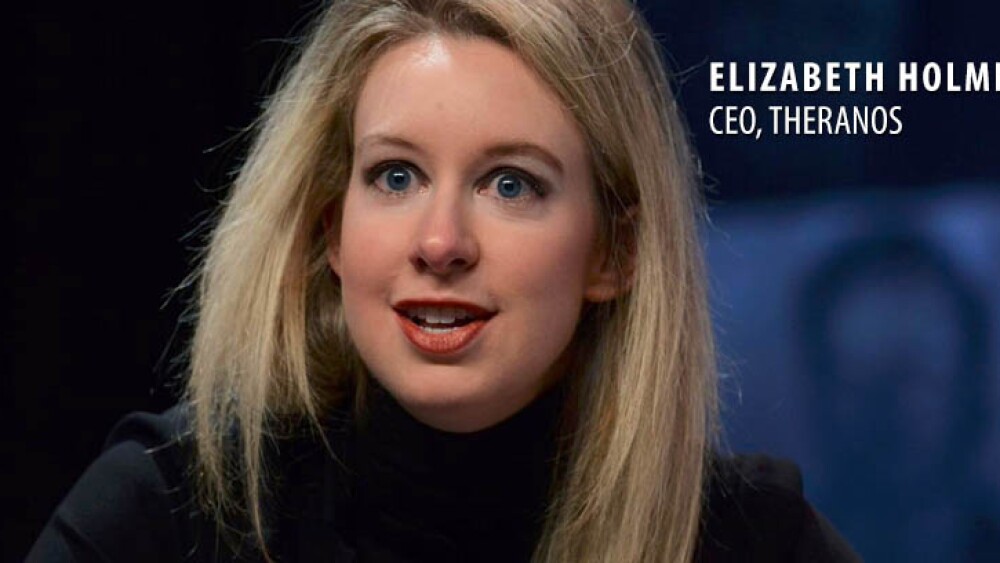June 6, 2016
By Alex Keown, BioSpace.com Breaking News Staff
PALO ALTO, Calif. – As questions continue to swirl around the efficacy of Theranos’ blood-testing technology, as well as her own personal wealth, one thing that will remain the same is the status of founder Elizabeth Holmes’ honorary doctorate from Pepperdine University.
Pepperdine told TheStreet that it had no intentions of rescinding Holmes’ honorary degree it awarded to her last year. Pepperdine bestowed an honorary Doctor of Humane Letters degree on Holmes last year when she delivered the commencement speech for 2015 graduates. In a May 2015 announcement about the degree, Pepperdine touted Holmes and Theranos for its blood-testing technology for supposedly being able to simplify “the way that lab diagnostics are conducted by providing new analytic tools and enabling early detection of disease.” However, it was only a few months later that multiple reports, spearheaded by investigative pieces from The Wall Street Journal, began to raise questions about the efficacy of Theranos’ proprietary technology. A wave of doubt has arisen about the claims the technology can conduct up to health 70 diagnoses from a drop of blood. Last month, one year after receiving the honorary degree from Pepperdine, Theranos announced it had to invalidate two years of test results to doctors and customers, meaning that some of the information sent could have been incorrect, leading to doctors making an incorrect diagnosis. That invalidation has already sparked one lawsuit and more are likely to follow. The company has issued “tens of thousands” of corrected blood testing results to patients and doctors in the wake of the invalidation. The re-done blood tests were performed on standard blood-testing equipment and not Theranos’ technology.
Despite that issue, as well as other questions surrounding Theranos, Pepperdine told TheStreet that it had no mechanism to rescind honorary doctorates and “selects recipients based on information available at the time the award is conferred.”
At the time, Holmes, who launched Theranos when she was a 19-year-old student at Stanford University, was hailed as a visionary and she and Theranos were embraced by investors, which soon had her company valued at $9 billion and made her the youngest female billionaire in the United States. Now that Theranos has been on the receiving end of increased scrutiny, there are new questions as to the actual value of Theranos and of Holmes’ own worth. A Forbes report speculates that Holmes, once worth about $4.5 billion, is now estimated to have a net worth of $0. Theranos certainly has not addressed the personal wealth of its founder and chief executive officer, but Forbes estimated the company is now valued at about $800 million. Although Holmes has a 50 percent stake in the company, Forbes said her shares are all in common stock, while her investors have “participating preferred shares,” meaning those types of shares take precedence over common stock in case of a liquidation.
There is currently no indication the company would be forced to liquidate, but in addition to the lawsuit filed after Theranos invalidated 24 months’ worth of blood testing data, the company also faces other legal concerns. In April the U.S. Department of Justice launched a criminal investigation into the company, with investigations centering on whether or not Theranos and its executives mislead investors as to the efficacy of its blood-testing products. News of a criminal investigation comes less than a week after reports revealed that Holmes could face a possible federally-mandated two-year suspension from the blood testing industry over failures to address deficiencies at lab facilities in California. In previous interviews, Brooke Buchanan, vice president of communications at Theranos, said Theranos has been working to address the issues raised by the U.S. Center for Medicare and Medicaid Services over practices at the company’s Newark, Calif. lab. In a lightly redacted 45-page letter dated March 18 over those concerns, the CMMS repeatedly used the bold-texted phrase “The laboratory’s allegation of compliance is not credible and the evidence of correction is not acceptable.” The phrase is used to indicate how Theranos’ addressing of issues that fail to meet federal Clinical Laboratory Improvement Amendments (CLIA) guidelines.





